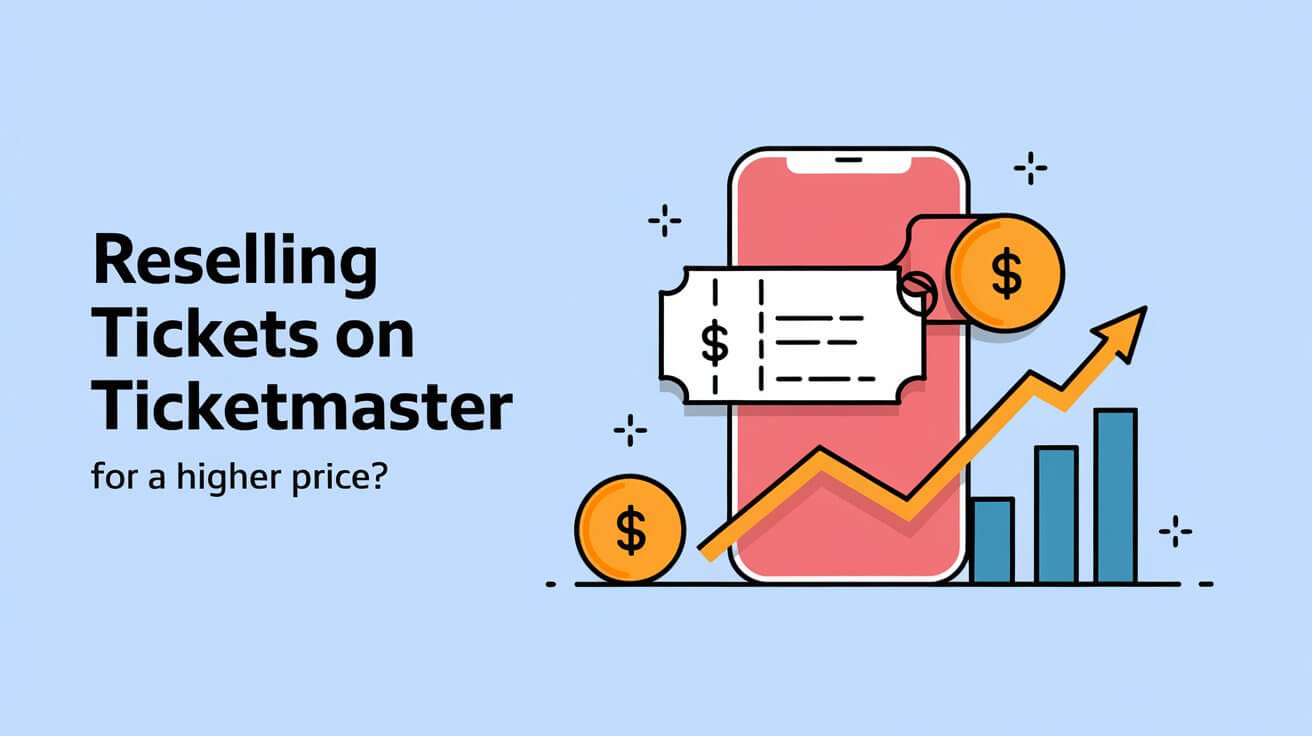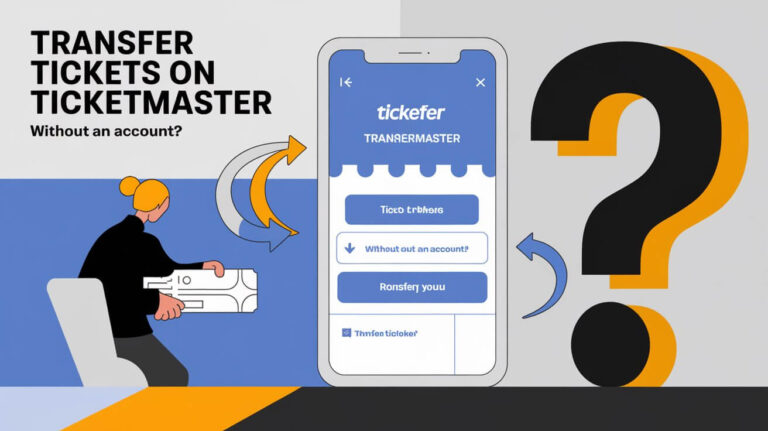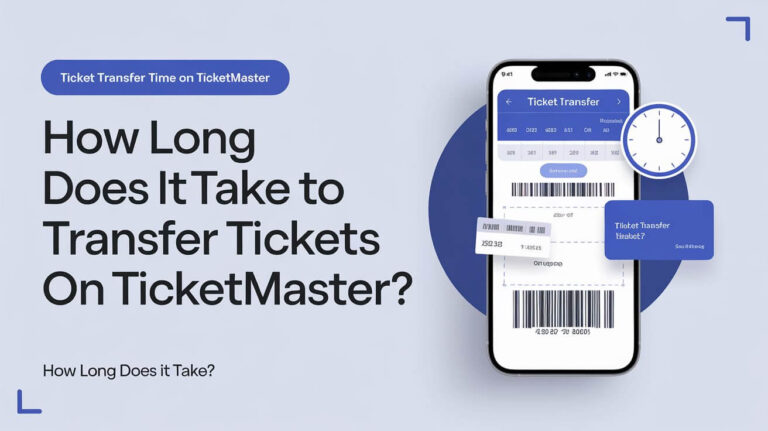
Ticketmaster lets fans buy and sell tickets, but there are rules to follow. It’s important to know Ticketmaster’s resale policy well. The Face Value Exchange is where you can sell tickets at face value, including fees and taxes.
When you resell tickets, you need to understand the fees and rules. This makes the process easier. The policy says tickets can be listed on the Exchange. But, the price you list it for must include all costs, like face value, fees, and taxes.
This means you can’t just sell tickets for more than you paid. You have to know about the fees and how to resell. In this article, we’ll show you how to resell tickets on Ticketmaster. We’ll also talk about what to expect.
Ticketmaster’s Official Resale Policy
Ticketmaster has a clear policy for reselling tickets on their site. This policy covers specific rules, what’s not allowed, and how to sell tickets right. Knowing these rules helps avoid problems with your account or sales. It’s also important to remember the fees Ticketmaster charges for these transactions.
Key points of Ticketmaster’s policy include needing a U.S. bank account and verified Tax Seller Details for payment. You can list tickets on the Exchange until an hour after the event starts. Sellers usually get paid in 5-7 business days after a sale. The policy also states that tickets are sold first to whoever buys them, and sellers can’t pick buyers.
Platform-Specific Rules
- Tickets can be listed on the Exchange until one hour after the event start time.
- Sellers receive payment typically within 5-7 business days after tickets are sold.
- Tickets are sold on a first-come, first-served basis, and sellers cannot choose buyers.
Sticking to Ticketmaster’s resale rules and knowing the fees, sellers can have a good experience selling tickets.
Price Caps and Restrictions on Resale Events
When selling tickets on Ticketmaster, sellers must know about price caps and restrictions. These rules help protect buyers and keep ticket prices fair. For instance, tickets on the Face Value Exchange must be sold at face value. This includes the ticket price plus any fees and taxes.
Some important things to remember when reselling tickets include:
- Face value tickets can only be sold at face value
- Resale price caps are in place to prevent excessive price hikes
- Ticketmaster’s Face Value Exchange has specific rules and guidelines for sellers to follow
It’s vital for sellers to understand these rules to avoid any problems. By following these guidelines, sellers help make a fair and safe place for buyers to find tickets.
| Platform | Price Cap | Restrictions |
|---|---|---|
| Face Value Exchange | Face value | Tickets can only be sold at face value |
Fan-to-Fan Resale Platform Features
Ticketmaster’s fan-to-fan resale platform is safe and secure. It lets buyers and sellers exchange tickets easily. Sellers can set their own prices, making it a great place to buy or sell tickets.
The platform has different ways to transfer tickets, making transactions smooth. It also checks tickets and protects payments. This means both buyers and sellers can trust the platform.
Key Features of the Platform
- Verification process to ensure authentic tickets
- Payment protection to safeguard transactions
- Various ticket transfer methods for convenience
- Fan-to-fan resale option for sellers to determine their own prices
Using Ticketmaster’s platform is secure and easy. It has features like fan-to-fan resale and different ways to transfer tickets. This makes it perfect for buying or selling tickets.
| Feature | Description |
|---|---|
| Verification Process | Ensures authentic tickets |
| Payment Protection | Safeguards transactions |
| Ticket Transfer Methods | Convenient options for buyers and sellers |
Can You Resell Tickets On Ticketmaster For A Higher Price
Reselling tickets on Ticketmaster for a profit is not straightforward. Ticketmaster’s Face Value Exchange lets fans sell tickets at face value. This means you can’t sell them for more through this platform. But, other resale options might let you sell at a markup, with extra fees and risks like Ticketmaster resale fees.
When reselling tickets for profit, keep these points in mind:
- Know the fees for reselling, like Ticketmaster resale fees
- Check the demand for tickets to set a fair price
- Be aware of the risks, like buyer protection issues
Ticketmaster doesn’t allow selling tickets on unauthorized sites. Selling them for more than face value is also not allowed. Private sales to friends or family have no fees but no buyer protection. Knowing the rules helps you make smart choices when reselling tickets for profit.
Profit Margins and Fee Structures
When you sell tickets on Ticketmaster, knowing the fee structure is key. Ticketmaster service fees can change the ticket price a lot. They can go up by 27% on average, with most of that money going to venues.
The way prices are set also matters a lot. This model looks at how many tickets are available and how many people want them. For big events, like music tours, prices can get really high. For example, tickets for famous tours can cost around $122.84, with extra fees added on.
| Fee Type | Average Fee |
|---|---|
| Service Fee | 27% of ticket price |
| Order Processing Fee | Varies depending on the event |
| Delivery Fee | Varies depending on the delivery method |
It’s important to understand the fees and pricing model if you want to make money selling tickets. By knowing these things, you can make better choices. Ticketmaster fees and pricing can really affect how much you make.
State Laws and Regulations for Ticket Resale
Different states have their own rules for ticket resale. These rules can change how tickets are sold. It’s key to know them to stay out of trouble.
For example, some states make sure the total ticket cost, including fees, is shown right away.
Ticket resale laws and state rules can really vary. In Massachusetts, a new law lets companies like Ticketmaster control ticket transfers. This law tries to stop ticket scalping by limiting where fans can resell tickets.
But, groups like StubHub and consumer watchdogs disagree. They say this law limits ticket resale options and might raise ticket prices.
In California, laws ensure fair ticket access. Scalping is illegal if tickets are sold without permission, above face value, or at the event. Knowing these laws is important for following the rules and avoiding legal problems.
- Some states require all-in pricing for ticket resale.
- Massachusetts has implemented a law that restricts ticket resale to the original platform.
- California prohibits the use of software that causes inequitable access to tickets.
Knowing these ticket resale laws and state regulations helps ticket sellers and buyers. It makes sure the resale market is fair and open for everyone.
Risk Factors in Ticket Reselling
Reselling tickets comes with risks that sellers must know about. Market volatility is a big concern. It can change ticket demand and prices quickly. This makes it hard to guess how much tickets will sell for, leading to possible losses.
Another risk is event cancellations or delays. These can hurt the resale market. Sellers might end up with tickets they can’t sell.
Important factors to think about include:
- Market volatility, which can impact ticket prices and demand
- Event cancellation policies, which can affect the resale market
- Buyer protection issues, which can arise if the buyer claims the tickets are not as described
Understanding these risks enables sellers to plan more effectively. It lets them make smart choices when selling tickets. By understanding these risks, sellers can try to avoid big losses and make more money.
Market Volatility
Market volatility is a big risk in ticket reselling. Ticket prices can be 39% higher than face value. Brokers might lose money on up to 24% of tickets they sell. This happens because of changes in demand, supply, and outside market factors.
Event Cancellation Policies
Event cancellations or delays can hurt the resale market. Sellers might lose money if they can’t sell tickets. It’s key for sellers to know about event cancellation policies to reduce risks.
Buyer Protection Issues
Buyer protection problems can happen if tickets don’t match what was promised. Sellers must give accurate ticket descriptions. They also need to follow the transfer process well to avoid buyer disputes.
Competition Analysis in Secondary Markets
The secondary ticket market is very competitive. Many platforms and resellers are in it. It’s key to understand the market and find gaps by analyzing competitors.
Companies like Ticketmaster and StubHub lead the market. Ticketmaster has a “Fan-to-Fan” resale system. StubHub has more than half of the U.S. ticket-resale market. This analysis helps sellers to be noticed in a crowded field.
Some important things to look at in this analysis are:
- Pricing strategies: How do competitors price their tickets, and what are the fees associated with their sales?
- Market share: What percentage of the market do each of the competitors hold, and how do they compare to one another?
- Services offered: What services do competitors offer to buyers and sellers, and how do these services impact the market?
Doing a detailed competition analysis, sellers can understand the secondary ticket market better. They can then make plans to succeed in this competitive area.
| Company | Market Share | Pricing Strategy |
|---|---|---|
| Ticketmaster | Over 80% of the U.S. market share for concert tickets | Dynamic pricing, with fees associated with sales |
| StubHub | Over 50% share of the U.S. ticket-resale market | Market-based pricing, with fees associated with sales |
Tax Implications for Ticket Resellers
Reselling tickets can lead to big tax issues. You must report the income from ticket sales. It’s key to know these tax rules to stay out of trouble.
In 2023, you won’t get a Form 1099-K unless you made over $20,000 from 200 transactions. But, the IRS will change this to $5,000 in 2024. If you made $400 or more from ticket resale, you might have to pay self-employment tax. It’s important to understand these rules to avoid problems.
Income Reporting Requirements
If you sell tickets often, you must report your income. How you report it depends on if you’re seen as a business or just selling personal items. Keeping receipts for fees can help lower your taxable income. TurboTax can guide you on how to report ticket resale income.
| Tax Year | Threshold | Transactions |
|---|---|---|
| 2023 | $20,000 | 200 |
| 2024 | $5,000 | N/A |
Knowing the tax rules for ticket resale is vital. By understanding these, you can avoid penalties and make the most of your ticket sales.
Alternative Resale Platforms Comparison
Ticketmaster isn’t the only place to sell tickets. Many other platforms offer different features and benefits. By comparing them, sellers can find the best fit for their needs.
Platforms like StubHub, SeatGeek, and Razorgator stand out. They have cool features like interactive seat maps and promises of ticket authenticity. They also offer great customer service.
| Platform | Capterra Rating | G2 Rating |
|---|---|---|
| Eventify | 5.0 / 5.0 | 5.0 / 5.0 |
| Eventdex | 5.0 / 5.0 | 5.0 / 5.0 |
| StubHub | 4.6 / 5.0 | 4.6 / 5.0 |
| Ticketbud | 4.3 / 5.0 | 4.3 / 5.0 |
When picking a platform, look at fees, rules, and what they offer. By comparing, sellers can pick the best platform for their goals. This way, they can use alternative ticket resale platforms wisely.
End Summary
As we wrap up our look at reselling tickets on Ticketmaster, the main point is clear. It’s vital to know the platform’s rules, fees, and how to sell tickets. Whether you’re using the Face Value Exchange or looking at other ways to sell, being well-informed is key.
Following the tips in this article helps ticket sellers do well in the secondary market. They can make more money while following Ticketmaster’s rules. For those wanting cheaper ways to sell, other platforms might offer better deals for fans wanting to go to events.
The ticket resale world is all about finding a balance. It’s about meeting market needs and respecting the rights of sellers and buyers. By staying alert and informed, you can dive into ticket resale with confidence and success.






